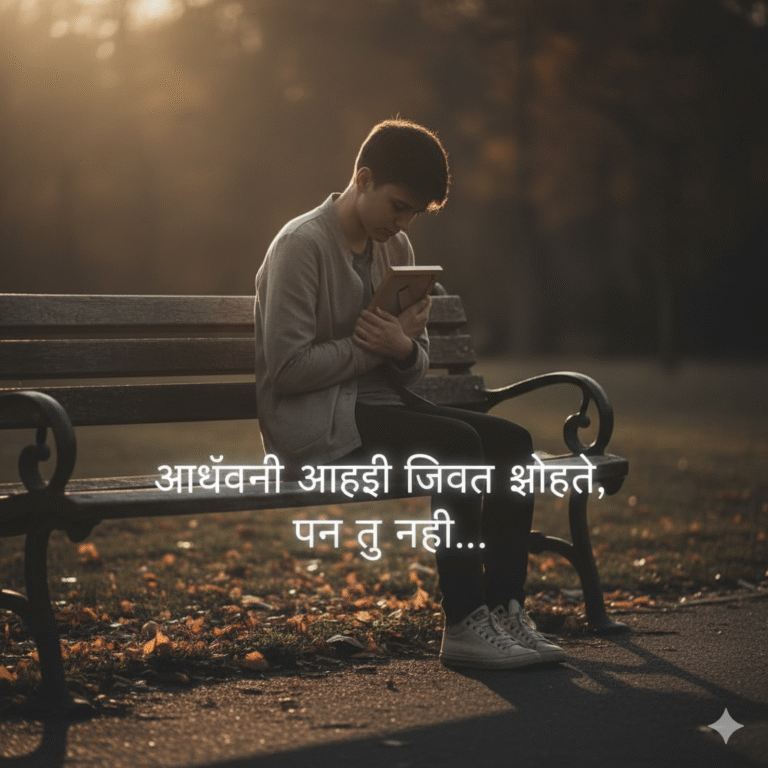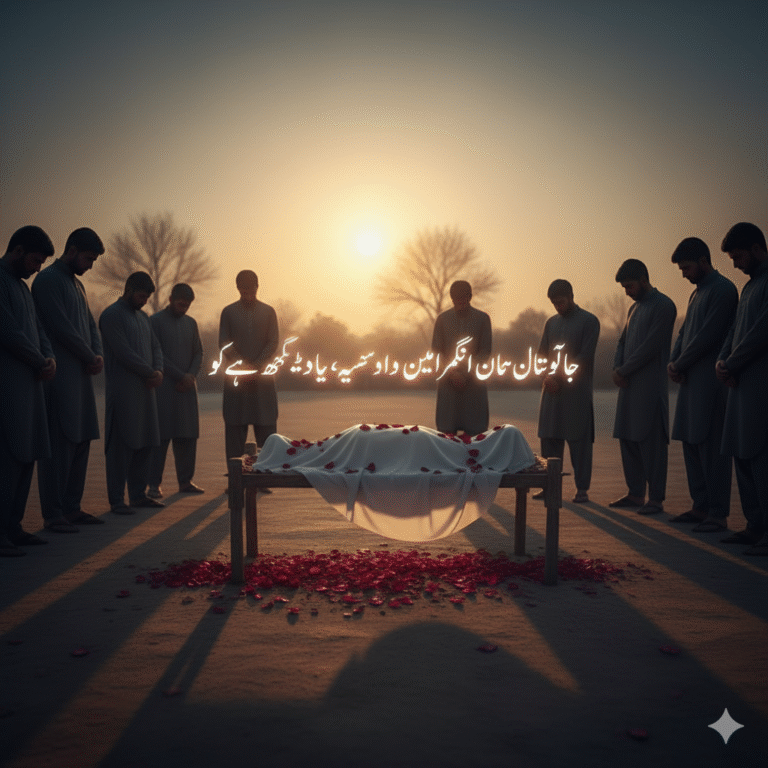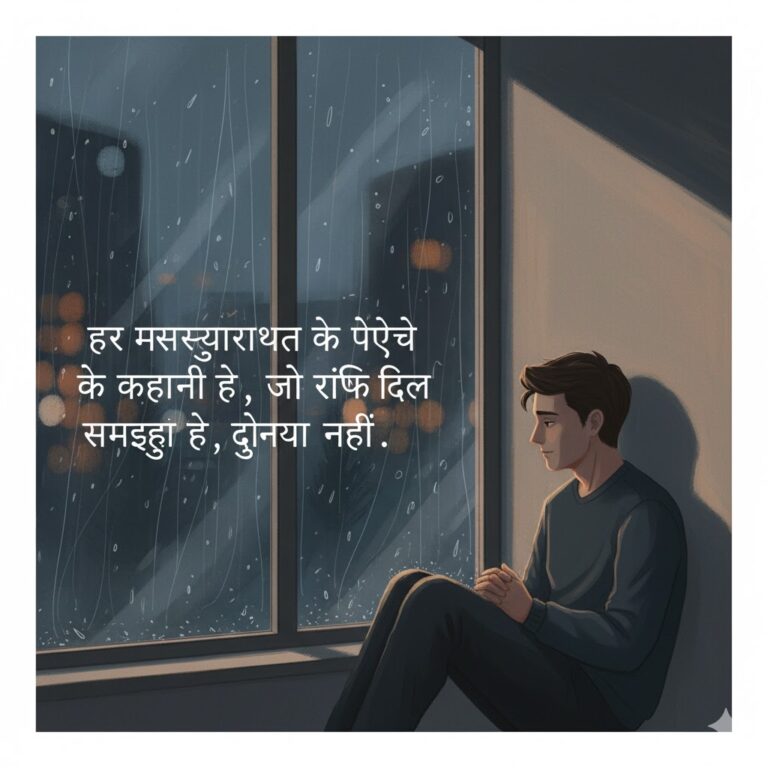Mirza Ghalib Sad Shayari: A Heartfelt Guide to His Eternal Melancholy
There are nights when the whole world feels too loud, and the only thing that helps is a couplet that slips under your ribs and sits there like it has always belonged.
Mirza ghalib sad shayari for millions of us, that couplet is almost always Ghalib’s. His sadness is not the kind that shouts; it is the kind that waits quietly in the corner of the room until you notice it has been watching you all along.
This is not another list of “Top 20 Sad Shayari” with stock photos and two-line explanations. This is a long, slow walk through the lanes of his sorrow—the real, complicated, sometimes contradictory sorrow that still makes strangers on the internet message each other at 3 a.m. saying, “Read this, it’s exactly how I feel.”

The Man Behind the Melancholy
Ghalib was born in 1797 into a world that was already ending. The Mughal empire was a ghost wearing borrowed clothes, the British officers were measuring Delhi for new roads, and pride was the only currency most aristocrats had left. He grew up proud, brilliant, and permanently broke.
He lost his father young, married at thirteen, buried all seven of his children, watched his city burn in 1857, and spent decades writing letters begging for the pension that was his by right. Yet when you read him, you never feel pity. You feel recognition. He took every wound life handed him and turned it into lines so precise they feel surgical.
That is why his sadness never feels self-indulgent. It feels earned.
What Most Websites Miss When They Talk About His Sadness
Scroll through any “mirza ghalib sad shayari” page and you’ll see the same pattern: a short bio, ten famous couplets in bold, a few heart emojis, and a promise that these lines will “heal your broken heart.” They treat Ghalib like emotional fast food—quick, tasty, gone in sixty seconds.
But Ghalib is a full-course meal served at 2 a.m. when you’re not even hungry anymore, and somehow you finish every bite. The websites give you the dessert and skip the conversation that made it taste the way it does.
The Different Flavors of His Sorrow
Ghalib’s sadness is never just one thing. Sometimes it’s romantic, sometimes philosophical, sometimes almost angry at God, sometimes gently amused at his own ruin.
There is the ache of impossible love:
ये न थी हमारी किस्मत कि विसाल-ए-यार होता अगर और जीते रहते यही इंतज़ार होता
There is the loneliness of simply existing:
हज़ारों ख़्वाहिशें ऐसी कि हर ख़्वाहिश पे दम निकले बहुत निकले मेरे अरमान लेकिन फिर भी कम निकले
There is the quiet rage at a heart that refuses to toughen up:
दिल ही तो है न संग-ओ-ख़िश्त दर्द से भर न आए क्यूँ रोएँगे हम हज़ार बार कोई हमें सताए क्यूँ
And then there are lines that feel like they were written for every sleepless night you’ve ever had:
कोई उम्मीद बर नहीं आती कोई सूरत नज़र नहीं आती
Separation That Never Ends
Ghalib doesn’t write about breakups. He writes about a separation that starts the day you fall in love and only ends when you die. The beloved might be standing right in front of him, and still the distance is cosmic.
He never begs the beloved to come back. He begs fate to explain itself. And when fate stays silent, he just shrugs—an exhausted, elegant shrug—and keeps writing.
The Heart That Refuses to Learn
Again and again he returns to this idea: the heart is not made of brick and stone. It will fill with pain the way a sponge fills with water. You can wring it out a thousand times and it will still soak up the next drop.
In a world that keeps shouting “guard your heart,” Ghalib says, “Why? It was built to break. Let it do its job.”
When Sadness Becomes Philosophy
People think Ghalib is only about lost love. He isn’t. Some of his deepest sorrow has nothing to do with a person.
बाज़ीचा-ए-अतफ़ाल है दुनिया मेरे आगे होता है शब-ओ-रोज़ तमाशा मेरे आगे
(The world is a children’s playground before me Night and day the spectacle unfolds in front of me)
This isn’t heartbreak. This is the exhaustion of a man who has seen too much and understood too clearly that nothing really matters—and somehow has to keep living anyway.
How He Makes Pain Beautiful
Ghalib doesn’t just say “I’m sad.” He builds tiny, perfect machines of metaphor that detonate inside your chest twenty years later when you suddenly understand what he was talking about you all along.
He’ll compare tears to an ocean, then say the ocean is ashamed of how much he cries. He’ll call love a wound, then say the wound is the only place light gets in. He’ll spend an entire ghazal talking about wine and you realize halfway through that the wine was never wine.
Why We Still Need Him in 2025
We ghost each other with a single blue tick. We say “I’m fine” in therapy-speak. We post black-and-white quotes about self-love and healing. And then, when the playlist ends and the notifications stop, we search for Ghalib.
Because he never promises it will get better. He just says, “Yes, I know exactly how this feels. Sit with me a while.”
That permission to hurt—without performance, without timeline—is rarer than diamonds these days.
The Lines That Live in Our Phones
Every generation thinks it discovered Ghalib. My grandmother cried to him over letters that never arrived. My mother cried to him over a marriage that slowly died. I cry to him over people who stopped replying. My niece sends his couplets in Instagram DMs after situationships fizzle out.
The pain changes clothes, but the body underneath is the same.
A Few Couplets I Can’t Live Without (Explained Slowly)
- इश्क़ ने ‘ग़ालिब’ निकम्मा कर दिया Love has made Ghalib useless. He signs his own worthlessness with his takhallus like it’s a badge of honor. Only Ghalib could make ruin sound proud.
- मुद्दत हुई है यार को मेहमान किए हुए It’s been ages since I invited the beloved over. The next line is about polishing the mirror of the heart with blood. Domestic imagery for spiritual devastation—classic Ghalib.
- हुई मुद्दत कि ग़ालिब मर गया पर याद आता है It’s been forever since Ghalib died, yet he keeps coming to mind. He wrote his own elegy while still alive. The arrogance. The accuracy.
- हम वहाँ हैं जहाँ से हमको भी कुछ हमारी ख़बर नहीं आती I am in a place from where even I don’t get news of myself. If that isn’t the most precise description of depression ever written, I don’t know what is.
How to Read Him Without Losing Your Mind
- Read one ghazal a week, not fifty couplets a day.
- Say the lines out loud. Urdu was made for the tongue.
- Keep a notebook. You will want to argue with him. Do it.
- Listen to Begum Akhtar or Abida Parveen or even the raw street qawwals—let the raag do the crying for you first.
- When you’re happy, leave him alone. He’s terrible company when you’re okay.
The Craft That Makes the Pain Sharp
He’ll use the same word three different ways in one couplet. He’ll ask a question and answer it with another question. He’ll say something tender, then twist the knife with irony so gently you almost thank him.
He is never sloppy. Every tear is measured, every sigh placed exactly where it will hurt most.
Where You’ll Still Find Him Today
Open any Pakistani drama when the heroine discovers the betrayal—Ghalib will be there in the background. Scroll through reels at midnight—someone slowed + reverb’d a Ghalib couplet over rain footage. Your cool atheist friend who claims poetry is dead will still have “hazaaron khwahishein aisi” in their bio.
He is the emotional mother tongue of anyone who has ever loved and lost on the subcontinent.
Frequently Asked Questions (The Ones People Actually Ask Me)
Is all his poetry sad? No. He could be savage, sarcastic, drunk, and hilarious. But the sad stuff is what survives because it’s what we need to survive.
Why does his sadness feel addictive? Because it’s honest. No sugar-coating, no “you’ll be fine,” just “this is how bad it is, and somehow we’re still here.”
Can I understand him without knowing Urdu? You’ll get the meaning, but you’ll miss the music. The music is half the medicine.
Which couplet should I get tattooed? None. Let them live in your mouth, not on your skin. But if you insist, go with: आह को चाहिए इक उम्र असर होने तक (A sigh needs a lifetime to take effect)
Ghalib doesn’t fix anything. He just sits with you in the dark and proves you’re not the only one who has ever been there. And sometimes, that is everything.







